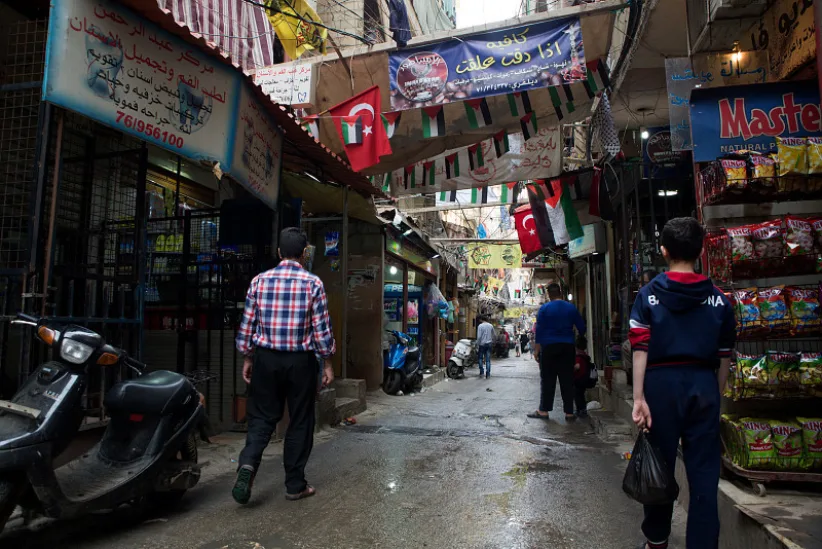Regional work in the Middle East and North Africa

Regional cooperation for advancing Freedom of Association, Women’s Rights and Socio-economic Rights
The goal for the regional work of Norwegian People’s Aid in the Middle East and North Africa is to support organizations in collaborating across countries, to exchange experiences, develop common agendas and regional cooperation strategies to achieve these agendas. Focus is on Freedom of Association, Women’s Rights and participation, and Socio-economic rights.
Since the «Arab spring» of 2011 Norwegian People’s Aid has been looking into ways of strengthening the work we do in country programmes in the region with a regional programme in support of regional exchange and cooperation. The Arab spring was among many things characterized by a spillover effect among countries, due in part to the fact that many social, economic and political challenges were and are similar in the countries of the region. In such a context, many organizations and activists expanded their contact with likeminded individuals in other countries and inspired each other. Given that the turmoils in the countries of the region have largely taken an authoritarian turn or ended in bloody conflict, the regional focus of activists and organizations has partly faded. Still, given the many common challenges there is significant potential for regional cooperation, and in fall 2015 Norwegian People’s Aid started a regional programme with support from Sida. The programme is focusing in particular on Freedom of Association and Women’s Rights. In 2016 NPA also started work on Socio-economic Rights with support from Norad.
The need for the right to organize freely and develop strong organizations was accentuated by the Arab spring. In some countries authoritarian legislation has limited the freedom to associate, in others political conflicts and violent repression of dissenting voices has limited the existing legal right. Norwegian People’s Aid sees the right to associate freely as a basic condition for the development of more socially just and democratic communities. Therefore, the regional programme has gathered organizations and activists from across countries to learn about freedom of association and to discuss how to achieve this right under the current circumstances. Through this effort, a number of organizations have been connected to networks working regionally on this issue. Furthermore, it has been an objective to include younger representatives of the organizations in the activities.
Few organizations in the MENA region have established their structures with the aim of representing a big membership. Fear of co-optation and political takeover looms. In addition, mass membership has a bad stain from decades of authoritarian rule in which mass organizations have been used for control by those in power. During the Arab spring there was massive social and political mobilization, but civil organizations did not have organizational structures to carry this mobilization on in a sustained manner. Through the regional programme activists and representatives of different organizations from the region meet in order to discuss how organizational structures can be developed in order to have stronger and more representative organizations for positive social and political change in the region.
Women’s rights are critically at stake across the region. A wave of conservatism in many countries impacts negatively on women’s rights, though in some countries legal provisions are improving, like in Tunisia where gender equality is now included in the constitution. Violence against women, sexual harassment and discriminatory family law are just some of the big challenges for women in the region. Women’s participation in society, and in particular in the circles of power, remains very limited. A worrying trend is that those who stand up to fight for women’s rights are met with reprisals from authorities and conservative groups. To assist and strengthen those women and men who are at the forefront of the struggle for women’s rights in the region the programme supports The Regional Coalition of Women Human Rights Defenders in the Middle East and North Africa
Social and economic injustice is a critical factor feeding instability in the MENA region, given that communities in the region are characterized by poverty and huge social and economic inequalities., This is fundamentally due to concentration of power, the strong ties and close overlap between political power holders and economic elites, as well as public policy skewed towards the few over the many. Furthermore, these circumstances are contributing factors for conflict and war in the region. Through the Arab NGO Network for Development’s work on The Arab Watch Report on Social and Economic Rights, the social and economic policies implemented in the region and their impact on people’s social and economic rights are documented and critically analysed. This documentation provides the basis for local and international advocacy for better social and economic development.